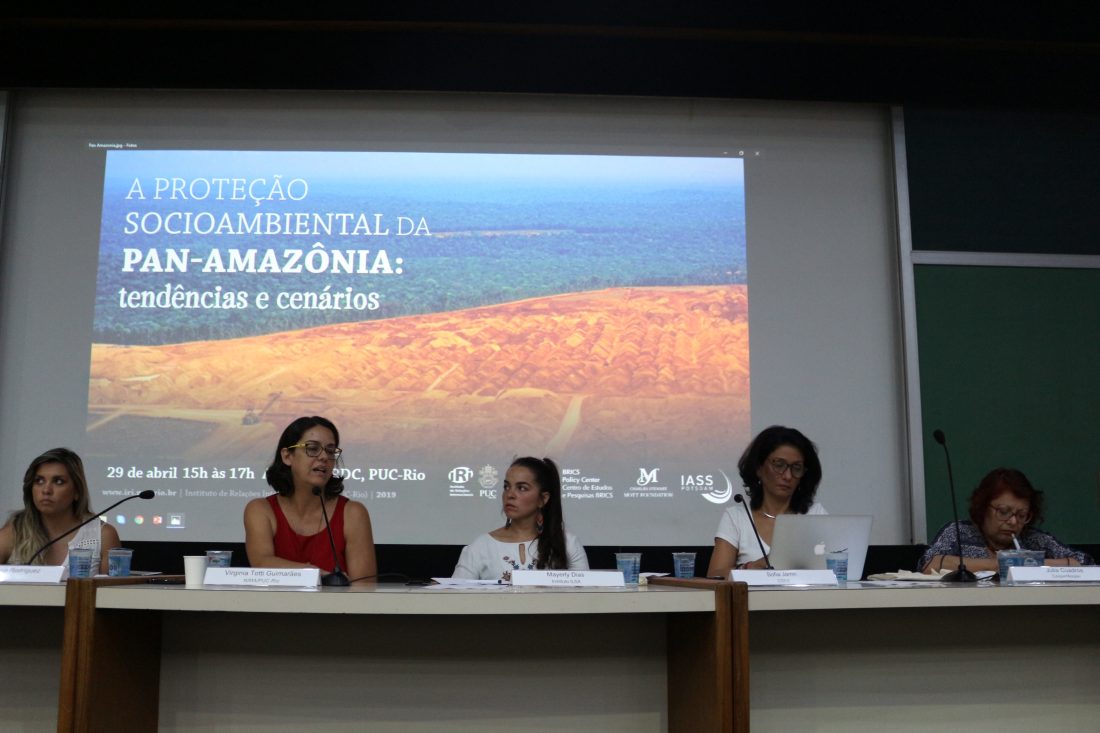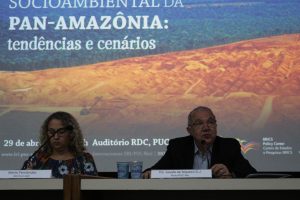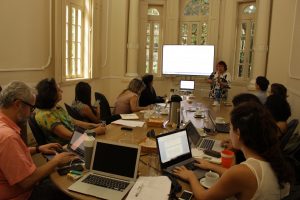
The Social-environmental protection of pan-Amazonia: researchers meeting and presentation of initial results
On April 29th, the BRICS Policy Center and the International Relations Institute of PUC-Rio promoted the event on “Pan-Amazonian Socioenvironmental Protection: trends and scenarios” in the RDC auditorium, PUC-Rio. The opening of the event had the presence of PUC-Rio’s President, Fr. Josafá de Siqueira S.J., and gathered teachers and researchers to present the results of a survey on the current socio-environmental protection of four Amazonian countries: Brazil, Colombia, Ecuador and Peru.
 (Opening of the event with the presence of the Director of IRI / PUC-Rio Marta Fernández and the PUC-Rio’s President. Fr. Josafá de Siqueira S. J. Photo: BPC Collection)
(Opening of the event with the presence of the Director of IRI / PUC-Rio Marta Fernández and the PUC-Rio’s President. Fr. Josafá de Siqueira S. J. Photo: BPC Collection)
On April 30, 2019, the BRICS Policy Center hosted a working meeting between BPC researchers and partner institutions from Peru (Cooperation), Ecuador (Center for Social and Economic Rights – CDES) and Colombia (ILSA). At the meeting, the researchers presented the first results of the research in partnership with the Mott Foundation. This is one of the central axes of a larger project, called Strengthening Safeguards of Emerging Financial Institutions.
 (Work meeting at BRICS Policy Center, Photo: BPC Collection)
(Work meeting at BRICS Policy Center, Photo: BPC Collection)
The previous phase of the project indicated that the Financing for Development Institutions (DFIs) have adopted the National Systems (NS) approach. This emphasis is not only given by new Multilateral Development Banks (MDBs), such as the Asian Infrastructure Investment Bank (AIIB) and the Bank of BRICS (NDB), but also by traditional institutions such as the World Bank and the Inter-American Bank of Development (IDB).
The second phase of the project monitored the National Systems of four Amazonian countries – Brazil, Peru, Ecuador and Colombia, seeking to analyze to what extent national socio-environmental safeguards are more flexible than those adopted internationally. The analysis of three dimensions, normative, institutional and participation, in six thematic areas (environmental licensing, environmental protection areas, indigenous rights, forests, agrochemicals, forced displacement, cultural heritage, water resources and land use) indicated that the region Pan-Amazon region is experiencing social-environmental deregulation.

